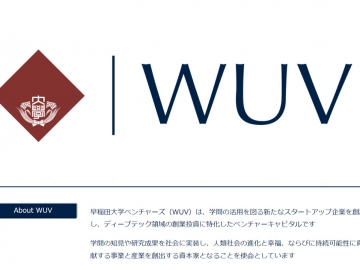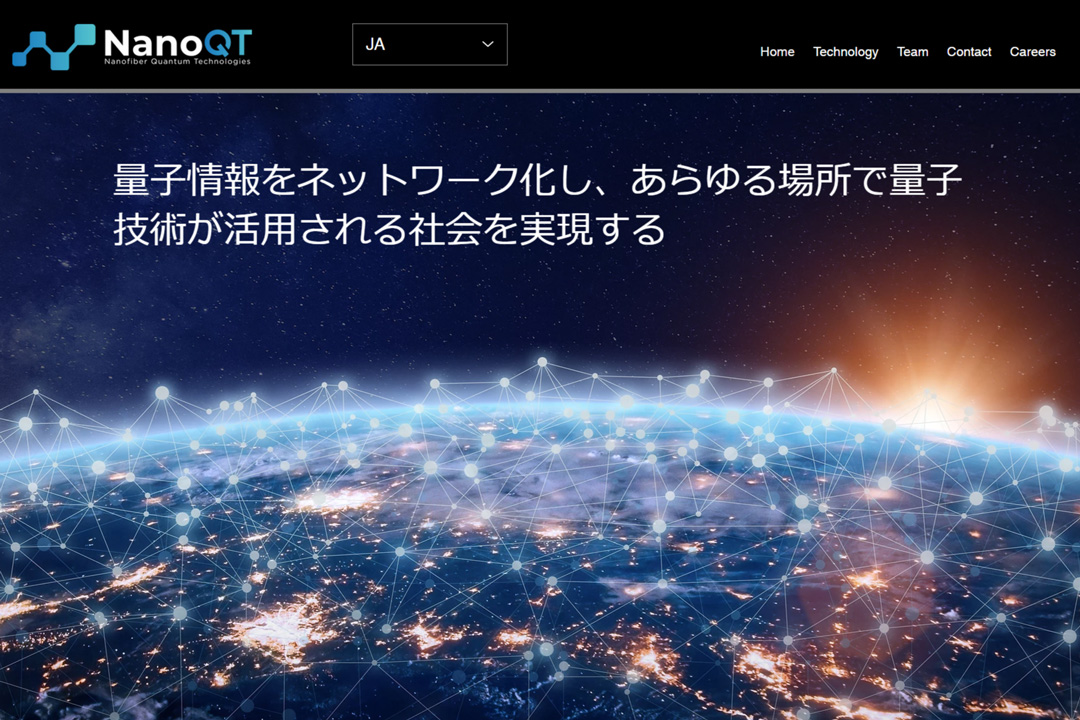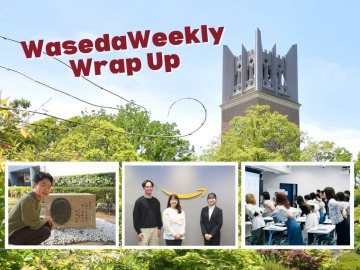Do you know about venture capital? It involves an institution that invests in unlisted and promising startups. In April 2022, WASEDA University Ventures, Inc. (WUV) was established as a venture capital firm with the aim of founding and nurturing university-initiated startup companies as well as applying and developing research results to solve social problems. The first to receive such support is Nanofiber Quantum Technologies, Inc. (NanoQT), a startup company that began at Waseda University. We interviewed Ted Yamamoto and Hiroaki Ohta, WUV Representative Directors and General Partners, and Professor Takao Aoki (Faculty of Science and Engineering), co-founder and chief scientific officer (CSO) of NanoQT. We asked them about the significance of investing and how it relates to students.
Exploring the ambitions of WASEDA University Ventures
WASEDA University Ventures, Inc. (WUV)
Ted Yamamoto, Representative Director/General Partner
Hiroaki Ohta, Representative Director/General Partner

Ted Yamamoto
After reading Physics, at the University of Oxford, UK (MA Oxon), Ted Yamamoto joined Mitsui & Co., Ltd. in 1994 and engaged in venture capital businesses in Japan and the United States. In 2008, he started working for The University of Tokyo Edge Capital Partners Co., Ltd. (UTEC). In 2009, he was appointed director partner. He served as external director in several firms that UTEC invested in, including Fyusion, Inc. (acquired by Cox Automotive, US in 2020), Autonomous Control Systems Laboratory Ltd. (currently ACSL, listed on TSE Mothers in 2018), Mujin, Inc. (MBO in February 2019), Phyzios, Inc. (acquired by Google, US in February 2013), and Naked Technology Inc. (acquired by MIXI in September 2011). After retiring from UTEC in 2020, he became an advisor to the Office of the President, Waseda University (innovation strategy) in 2021. He assumed his current position in April 2022.
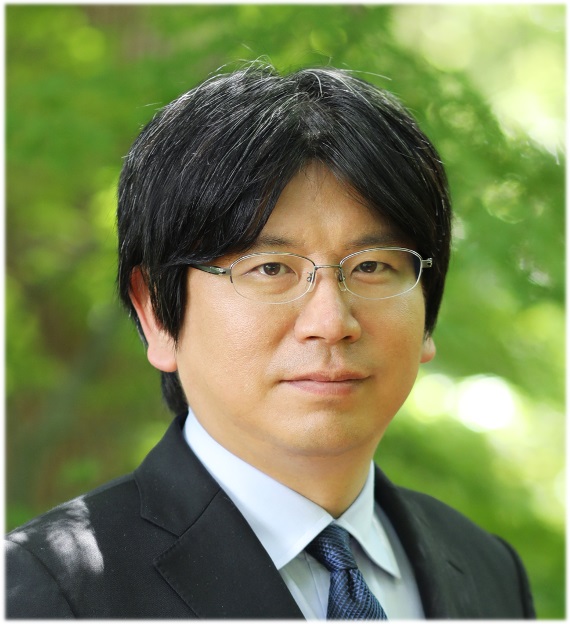
Hiroaki Ohta, Ph.D.
After working as an assistant professor at the Department of Aeronautics and Astronautics, Graduate School of Engineering, Kyoto University, Hiroaki Ohta engaged in research at the University of California, Santa Barbara, US. He joined McKinsey & Company in 2010. He joined the drone-related startup Autonomous Control Systems Laboratory Ltd. (currently ACSL) in 2016, listing it on TSE Mothers as Representative Director in 2018 (he later became CEO and Chairman before retiring in March 2022). He became an advisor to the Office of the President, Waseda University (innovation strategy) in 2021. He received a Ph.D. in Energy Science from Kyoto University.
We offer all the support needed to help companies grow
――First, please tell us about the structure of venture capital (VC).
Yamamoto: A VC is an organization that invests in unlisted start-ups. A VC that acquires shares of a company in which it has invested will earn profits by transferring the increased value of the shares to others when the company is listed or acquired in the future. At the same time, a VC collects funds from higher-level investors, such as financial institutions and institutional investors, to create a pool of money called a “fund.” Its main role is to use those funds raised to invest in startups that have the potential to succeed in the future.
――Please tell us about the background and purpose of the establishment of WASEDA University Ventures, Inc. (WUV).
Yamamoto: As you can see from the name, WUV is a VC named after Waseda University. Based on “the practical application of scholarship,” one of Waseda University’s founding principles, we were established in April 2022 as a VC specializing in startup investment in the deep tech fields* with the aim of founding and nurturing startup companies originating from Waseda University and applying their research results in society.
(*) Advanced scientific or engineering fields that have a significant impact on the world or solves problems. Technological fields include robotics, semiconductor technology, quantum computers, new materials and secondary batteries, and biotechnology.
Even if the university has ideas that may benefit society, the mere existence of research results and patents does not make a company viable. As such, we not only contribute funds for the founding of companies but are also involved in internal aspects necessary for their growth of as executives and shareholders.
Specifically, we recruit human resources, create business plans, introduce partner companies, and support in collaborating with other companies. VCs in university ecosystems, mainly in Silicon Valley in the United States, have been greatly involved in launching modern world-leading companies, such as Google, Apple, Facebook (now Meta), and Amazon. In this respect, VCs that collaborate with universities are indispensable for creating the new economy.
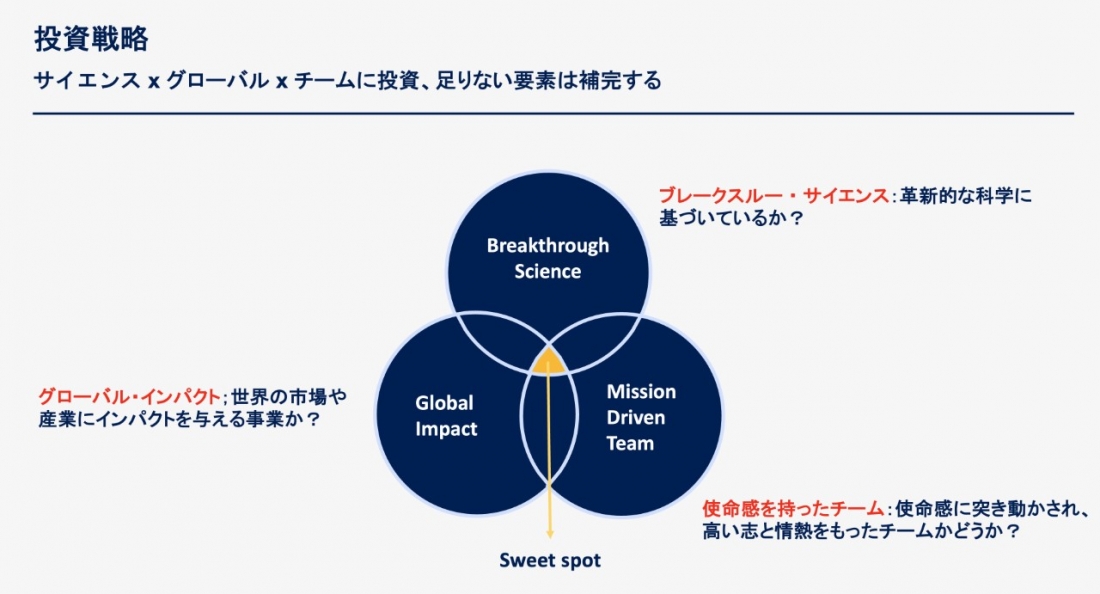
WUV investment strategy
Students with an “entrepreneurial mindset” may be eligible for investment
――What are the strengths of VCs that specialize in universities, such as WUV?
Yamamoto: Our mission is to launch companies from scratch based on the results of university research. Compared to general VCs, we do not invest in startup companies that already have a high probability of success as a business but commercialize them from a state in which they consist of only researchers and lack a management system, supporting them based on a deep understanding of the research contents.
University-specific VCs began to emerge in Japan mainly at national universities such, as The University of Tokyo around the mid-2000s, but they are still few in number at private universities.
――How can Waseda University students get involved with WUV?
Yamamoto: Just as a doctoral student at Stanford University founded Google, even if you are a student, if you have an idea for your research or a concept for commercialization, and you have an “entrepreneurial mindset” that you want to take to the world stage, we can help you by formulating a vision together. As such, I hope they will consider us a candidate for partnership when starting a business. Both WUV and the startups we invest in are actively recruiting interns. By participating in such internships, you can be involved in the launch of a company from the perspectives of both the investor and the startup company. I think it will be a good stimulus for those who want to start a business in the future, so please feel free to contact us.
The role of VCs is to create opportunities for “chemical reactions between people”
――In August 2022, WUV established its first fund and invested in Nanofiber Quantum Technologies, Inc. (NanoQT) led by Professor Takao Aoki. Please tell us how that happened.
Yamamoto: We officially announced the establishment of WUV in January 2022, and after it started in April, we approached institutions that could invest in a fund; as a result, we were able to raise 5.66 billion yen in the first offering, which closed in August.
Ohta: For the first project of the first fund, WUV made a startup investment of 200 million yen in NanoQT, a startup company originating from Waseda University. The impetus for the investment was an inquiry from Professor Aoki asking if he could start a business using his research on nanofibers. After meeting Professor Aoki and studying his theory in-depth, we decided to invest in the research because we deemed the research to be uniquely original.
When starting a business, it is important to decide who is president, but we hadn’t found anyone at the time. So, I introduced him to Dr. Masashi Hirose, an acquaintance of mine. After many discussions between the two parties, he was selected as the company CEO.
In this way, VCs play an important role not only by investing money but also by creating opportunities for “chemical reactions between people.” In other words, we’re a bit like a matchmaker. As with matchmaking, it is up to the parties concerned to decide whether or not to become partners. If both sides agree, we will proceed as an investment professional.
The key for a startup to succeed is to balance the level of research and the abilities of the human resources who gather there, and to respect for each other. In that respect, I am proud that it went quite well this time.
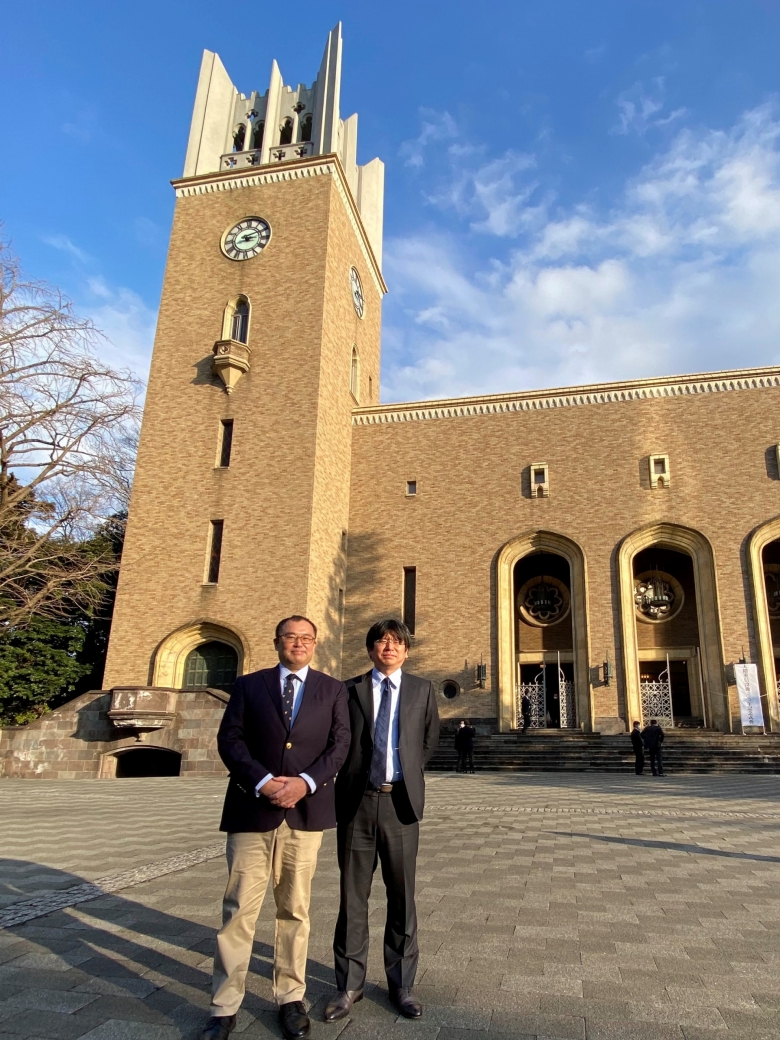
The photo was taken in front of the Okuma Memorial Auditorium when the establishment of WUV was announced on January 10, 2022, the day of the 100th anniversary of the death of Shigenobu Okuma (From left to right: Yamamoto-san and Ohta-san). The creation of this VC is also mentioned in Waseda Vision 150 and Beyond.
Entrepreneurial ideas are always welcome!
――In conclusion, do you have a message for the students?
Yamamoto: Waseda University has a tradition of producing numerous leading entrepreneurs from Japan, from Sony’s Masaru Ibuka back in the day to Mercari’s Shintaro Yamada more recently. WUV would like to follow in that tradition and create success stories to show the potential of startup companies. As such, I would like students to actively aspire to start their own businesses. Startups are a world of dreams that, if successful, can contribute to human civilization. It is also important to have strong resilience to the fear of failure. Make sure to experience many challenges and failures while you are still a student. Startups are full of opportunities to gain that experience.
Ohta: Whether you want to start a business or have an idea that can be commercialized, you can consult with us about all kinds of things, so I invite you to jump in at any time. Please feel free to contact us without any apprehension and with hope!
WASEDA University Ventures, Inc. (WUV)
Address: 201, 2nd floor, Nishi-Waseda Building,
1-21-1 Nishi-Waseda, Shinjuku-ku, Tokyo
Website: https://www.waseda.vc/
E-mail: [email protected]
Interview and text: Shunsuke Kamigaito
What’s important in research are “people.”
Expectations for WUV’s human network in addition to “funds”
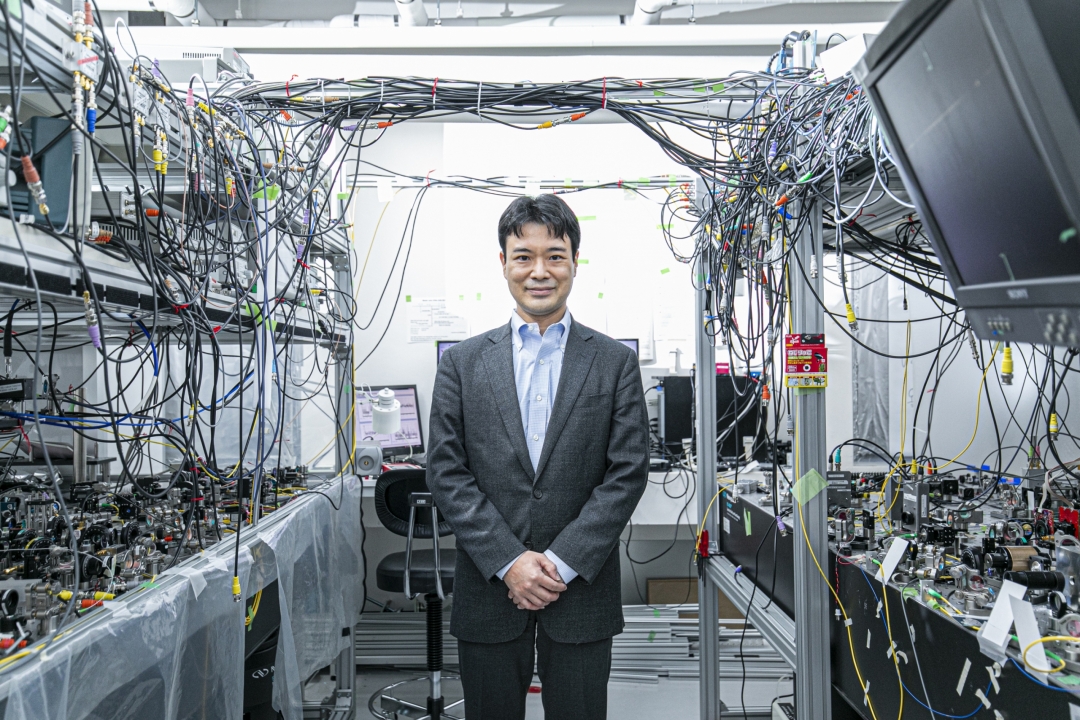
In a laboratory on the Nishi-Waseda Campus
Nanofiber Quantum Technologies, Inc. (NanoQT)
Takao Aoki, Co-Founder/Chief Scientific Officer (CSO)
Takao Aoki is a professor at the Faculty of Science and Engineering, Waseda University. He has consistently been engaged in quantum optics research with a view to applications in quantum technology at the University of Tokyo, California Institute of Technology, and Kyoto University, as well as invented and developed nanofiber cavity QED technology at Waseda University. He has a Ph.D. in Engineering.
Developing the world’s first quantum computer using atoms and photons
――What kind of technology is the foundation of NanoQT that you have been working on at the Faculty of Science and Engineering, Waseda University?
My specialty is quantum optics, a field of quantum physics, and NanoQT’s main business is to practically apply the results of this basic research in quantum computers.
Quantum optics is a field that studies the behavior of “photons,” which are elementary particles of light. In brief, the nanofiber cavity QED, which is NanoQT’s fundamental technology, is unique in that it can operate quantum computers by utilizing atoms and photons together. NanoQT is the only company in the world that has developed a quantum computer using a hybrid atom-photon method.
――Please tell us how you came to establish NanoQT in April 2022.
It was more than two years back that I thought about starting a business based on this nanofiber cavity QED technology. In Europe and the United States, progress has been made toward the “industrialization of quantum technology,” including the development of quantum computers, in the last 10 years or so, and with the entry of big tech, such as Google and IBM, it is about to become a huge business in the next few years. I believed it was a crisis that Japanese industry was lagging behind this big trend, so I started the business because I felt that I would have to take matters into my own hands!
The level of basic research in Japanese academia in the field of quantum technology is very high. However, the reality is that there is no system in place that allows talented young researchers to conduct research in an environment that is stable both economically and professionally. As such, I am working on this project with a sense of mission to create a model whereby researchers engaged in basic research can devote themselves to their research in a generous environment, as well as a desire to present my technology to the world.
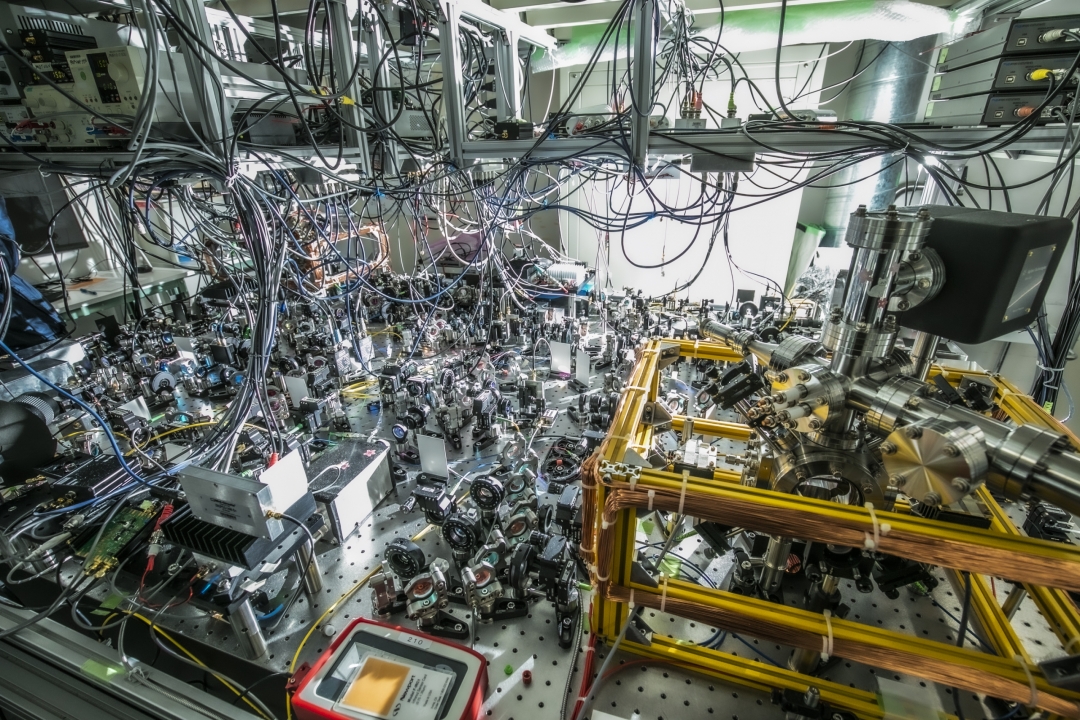
In the laboratory, developing networking technology for nanofiber cavity QED systems
A major challenge was who would manage the new company
――Why did you decide to receive investment from WUV?
When starting a business, financing is important. Waseda University has a Center for Entrepreneurship, and as I received advice from them, I consulted with several VCs about funding. One of them was WUV, which was the last one I consulted.
Yamamoto-san and Ohta-san at WUV also have research backgrounds in science and engineering, and they called our research “beautiful.” After gaining a deep understanding of this highly specialized research, they encouraged me by saying, “There are few hardware development startups in the Japan” and “You should start a business right away.”
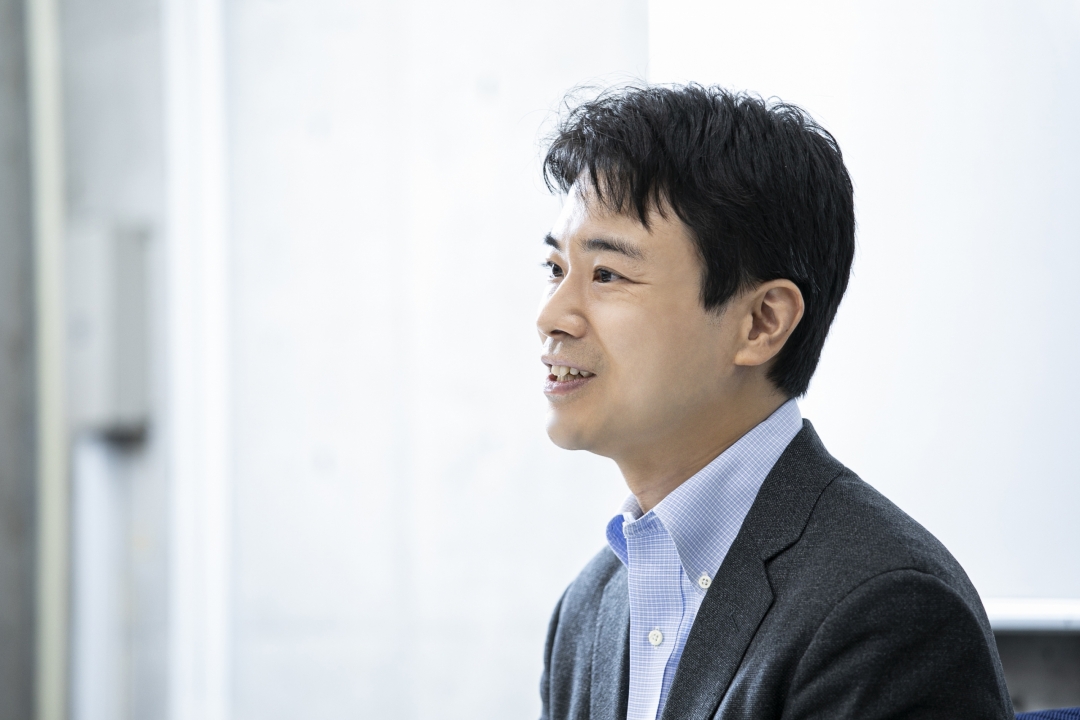 When collaborating with the VCs, we focused on “people” over “funds.” One big challenge was who would be the CEO of the new company. The reason that talks didn’t go anywhere even when multiple VCs offered to invest was that we couldn’t find a CEO. The right person has to have know-how in organizational management, be bright in quantum physics, and have a global sense… If you think about it normally, there aren’t many people like that. Under these circumstances, Ohta-san at WUV introduced me to the current CEO, Masashi Hirose, and we began talks immediately.
When collaborating with the VCs, we focused on “people” over “funds.” One big challenge was who would be the CEO of the new company. The reason that talks didn’t go anywhere even when multiple VCs offered to invest was that we couldn’t find a CEO. The right person has to have know-how in organizational management, be bright in quantum physics, and have a global sense… If you think about it normally, there aren’t many people like that. Under these circumstances, Ohta-san at WUV introduced me to the current CEO, Masashi Hirose, and we began talks immediately.
Moreover, finding a CEO allowed Akihisa Goban to join the founding team as Chief Technology Officer (CTO). I had told him that I wanted him to join the research team more than a year previously, and when the three of us talked again, I was convinced that we could do it.
In this way, the three of us founded the company and decided to ask for investment from WUV, who had the best understanding of our research and had introduced us to Hirose.
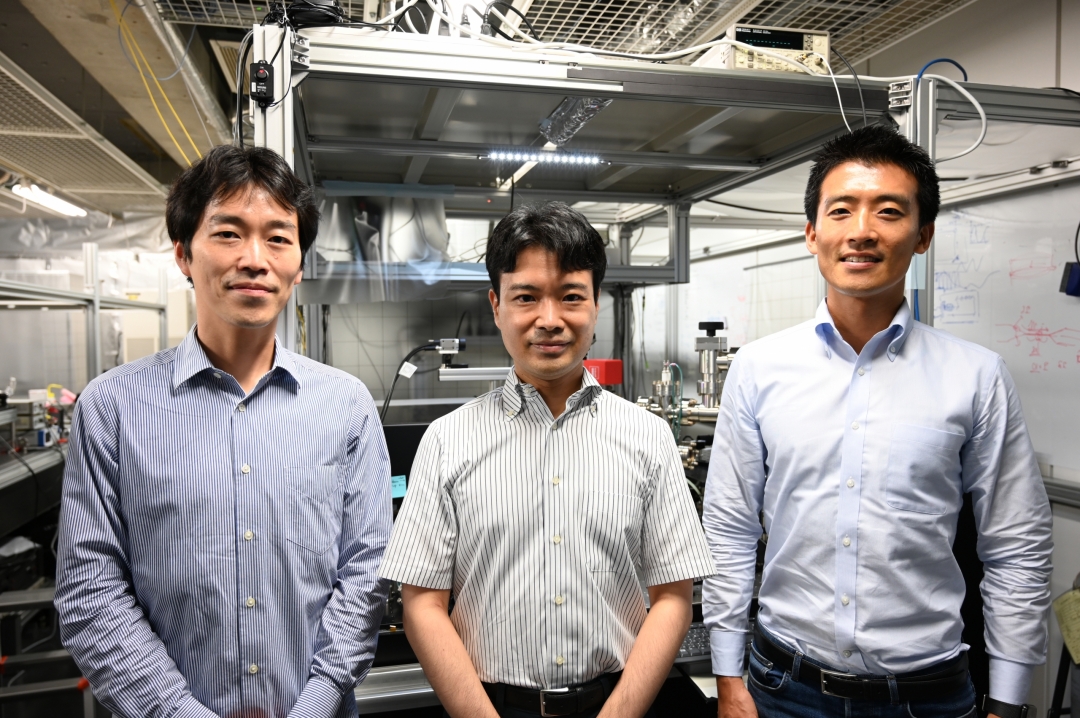
From left to right: Akihisa Goban (CTO), Prof. Takao Aoki (CSO), Masahi Hirose (CEO)
I want to create a global company from Waseda University
――As the WUV’s first investee, what are your expectations of it?
As the first WUV investee, the challenge in advancing our research is how to attract world-class researchers. The benefits offered to engineers in Europe and the United States are steadily increasing, and for those who can develop quantum computers, the benefits are especially good, including wages, so if possible, I hope we can prepare an environment that is comparable to that. Fortunately, with the establishment of NanoQT, we have increasingly been joined by people qualified to become PIs (principal investigators) at top-level universities. This is definitely thanks to the support of WUV.
――Please tell us about your future business prospects.
The goal, of course, is to promote the industrialization of quantum technology and contribute to the development of science, technology, and industry in Japan. First, we will catch up with and overtake earlier implementation methods in the field of quantum computers through our own excellent technology. Furthermore, I see great potential in construction of quantum networks using nanofiber cavity QED. I want to create a global company from Waseda University.
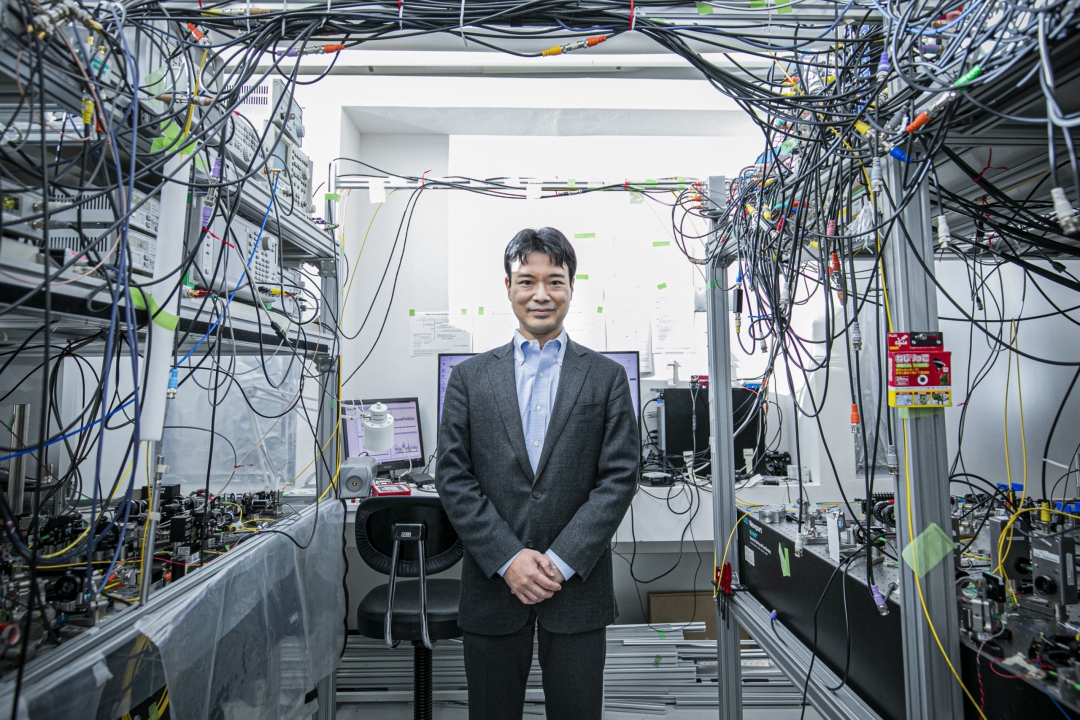
Nanofiber Quantum Technologies, Inc. (NanoQT)
Address: 1-22-3 Nishi-Waseda, Shinjuku-ku, Tokyo
Website: https://www.nano-qt.com/
E-mail: [email protected]
Interview and text: Kenichi Marumo
Photography: Kohta Nunokawa
*This article is a translation from the Japanese edition of Waseda Weekly published on November 21, 2022. The content is current at the time of Japanese publication.

